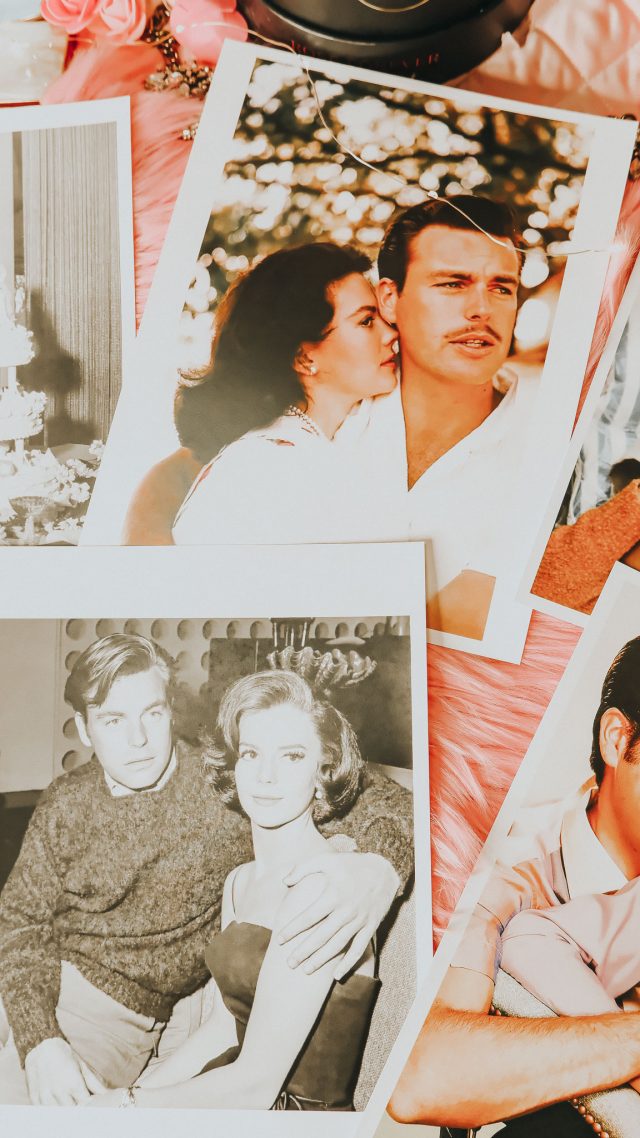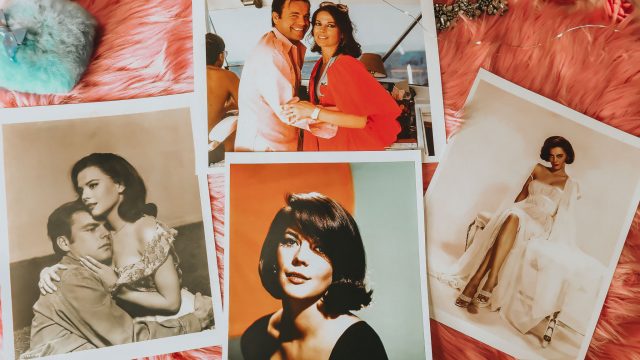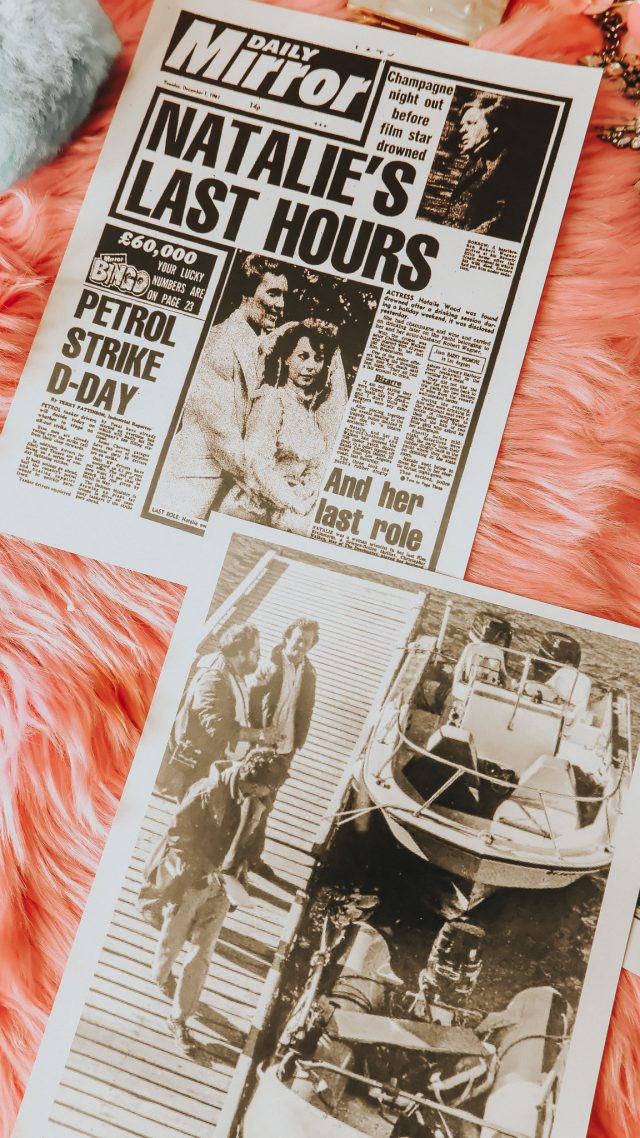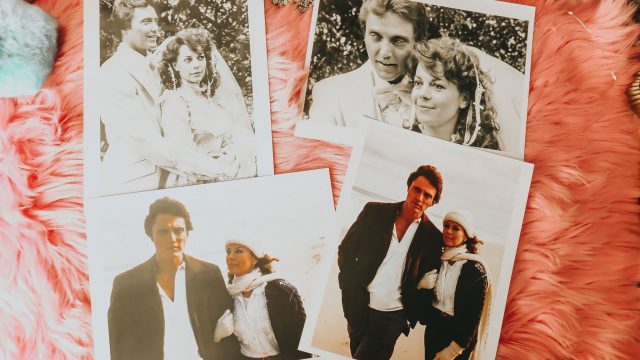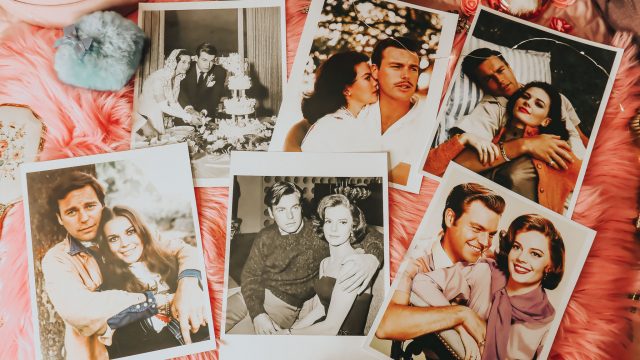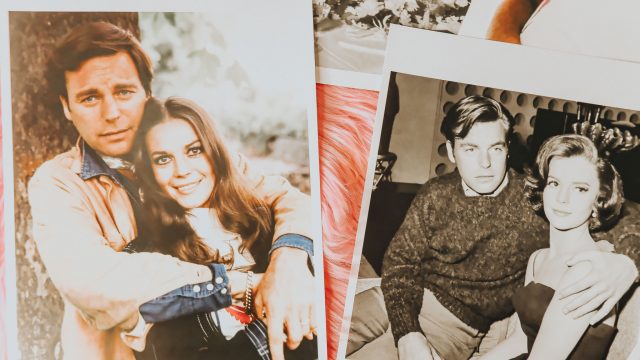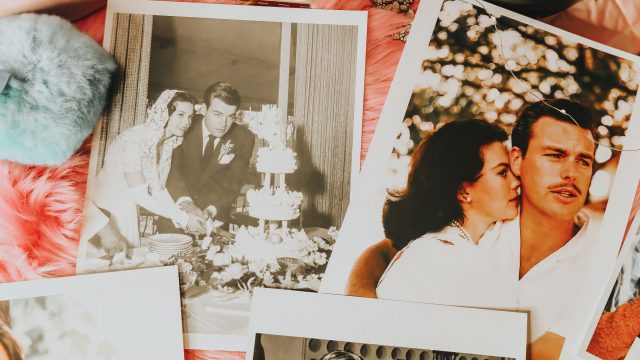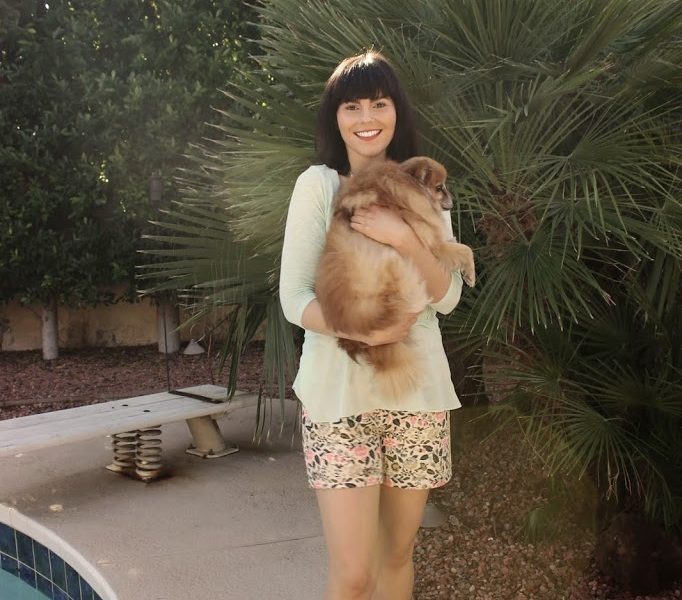What Really Happened to Natalie Wood?
The Hollywood star’s death was declared accidental decades ago—but now, investigators aren’t so sure.
On a chilly November day 37 years ago, four adults went for a cruise off the southwest coast of Los Angeles aboard Splendour, a 55-foot yacht. Three of those adults would come safely back to shore. The fourth would never see home again. She’d never work also or see her children reach adulthood. She was discovered floating in the water in a flannel nightgown, socks, and a down jacket the next morning.
In this story, the unlucky adult was also the most famous adult, movie star Natalie Wood, who was 43 at the time. She had been a beloved child actress, first capturing national attention in the 1947 Christmas classic Miracle on 34th Street. She played the skeptical, precocious Susan Walker—and then as a beautiful ingenue in such films as the 1961 musical West Side Story, in which she played a graceful Maria. By the age of 25, she had been nominated for three Academy Awards for Best Actress for her leading roles in Rebel Without a Cause, Splendor in the Grass, and Love With a Proper Stranger.
But perhaps because of her tragic end, when you hear the name “Natalie Wood” today, you don’t think first of her storied career. To wit: There are 38 million Google results for the search term “Natalie Wood death.” While the circumstances surrounding her death remain murky and controversial, we can agree that in dying so young, and so mysteriously, Wood’s talent was denied a proper legacy.
In 1981, Natalie’s death was classified as an accident and “probable drowning in the ocean.” Prominent Los Angeles coroner Thomas Noguchi cited in his report “numerous bruises to arms and legs” that were “superficial and probably sustained at the time of drowning” and wrote, “No other trauma noted and foul play is not suspected at this time.”
The investigator’s report attached to Noguchi’s document said that Wood and a small party that included her husband, Robert Wagner, had left the Splendour for a restaurant dinner on Catalina Island. At about 10 pm, the “intoxicated” group returned to the yacht, using its dinghy, Valiant. Robert Wagner told the investigators that Natalie retired for the night in the couple’s cabin at about 10:45. Still, after talking for a while longer with their guest, Natalie’s co-star at the time, Christopher Walken, Wagner went to join her in the cabin, only to find her missing.
Wagner and the others soon discovered the dinghy was also missing, and they “immediately” radioed for help. Harbor Patrol, private searchers, and eventually the Coast Guard all combed the water and island coastline, and a Sheriff’s Department helicopter finally spotted Natalie’s floating body. She was pronounced dead at 7:44 am on November 29th.
Wood’s funeral, held on December 3rd, showed a devastated, weeping Wagner, surrounded by friends, family, and the cream of the entertainment world: Laurence Olivier, Frank Sinatra, Gregory Peck, and Rock Hudson. Instead of finality, Wood’s death only seemed to provoke questions, and three decades later, in 2011, the Los Angeles County Sheriff’s Department reopened the investigation. And at a press conference in February of 2018, Captain Christopher Bergner of the homicide department said: “new witnesses” and those with relevant information had been identified. A different timeline had emerged of Natalie Wood’s last hours on the boat and when help was requested.
At that February press conference, John Corina, a lieutenant in the Los Angeles Sheriff’s Department Homicide Bureau, said that Robert Wagner, 88, was “a person of interest” in her death, and they would like to speak with him again and hear his version of events. The new witnesses, he said, were people in boats moored near the Wagner yacht who listened to a couple loudly arguing as well as a woman calling for help.
“[Wagner] is a person of interest because he was the last one with Natalie Wood. And somehow, she ends up in the water and drowns,” said Corina.
“The case is still open,” says Suzanne Finstad, author of Natasha: The Biography of Natalie Wood. (Natasha was the name her Russian family called her.) When Finstad’s book was published in 2009, it contained startling claims about Wood and Wagner’s arguments shortly before she was declared missing from their yacht. The source was the fourth person on the boat, its captain, Dennis Davern, who is now 70. In the February press conference, Corina said the witness statements from those who heard a couple fighting matched up with what Davern has noted in recent police interviews.
Corina added that his department has also talked to witnesses who saw the group on Catalina Island that weekend and people who knew Wagner and Wood. Some of the details that have emerged about the yacht’s last hours are ugly, with whispers of drunkenness, rage, and accused infidelity.
Natalie Wood’s life is like a Russian matryoshka doll, a set of wooden dolls nesting in one another. When you pick up one doll, you find another inside, over and over. Even those who thought themselves familiar with the sparkling Wood’s life story would be taken aback by the reality of her childhood.
Born Natalia Nikolaevna Zakharenko, Wood was the daughter of Russian immigrants. (Studio executives changed Natalia’s name to Natalie Wood when she first started acting like a child.) Her father, Nikolai Zakharenko, was a labourer given to violent alcoholic rages. Her mother, Maria, was a fantasist and an abusive taskmaster. According to Finstad’s biography and other books, documentaries, and articles about Wood, they drove her tiny daughter to become the family breadwinner.
Maria’s family fled to China after the Russian Revolution, and when she was a child, she said she had her fortune read by a gypsy in Harbin. The fortune-teller told her that her second child “would be a great beauty, known throughout the world.” But she also said that Maria must “beware of dark water.” Maria passed on that fear to her second daughter while pushing her to fulfill that first prophecy.
There are harrowing stories of Maria’s career as a stage mother. She was determined that her daughter, after receiving small parts, would be cast in the 1946 film. Tomorrow Is Forever alongside Orson Welles. The character was that of an emotionally fragile girl orphaned by the Nazis. To win the part, Wood would have to be able to cry on cue. Her mother wasn’t sure she could do it. At the studio, clutching her seven-year-old daughter before her screen test, Maria whispered to her to think of the death of the family dog.
But she went much further than that, according to Finstad’s book. “Her mother pulled her to the side, where no one else could see, ‘took a live butterfly out of a jar and store the wings off it.’ Tenderhearted Natasha went into hysterics as her mother called out, ‘She’s ready!’ grabbing her by the hand and pushing her in front of the camera.”
Wood was so moving in the film that she won a long-term studio contract. She was famously hard-working, learning not just her lines but everyone else’s, and earning the nickname “One Take Natalie.” She performed in a dizzying number of movies, including The Ghost and Mrs. Muir, and, as she reached her teen years, wore braids and frilly dresses so she could play younger roles.
But, unsurprisingly, Wood rebelled from her mother’s tight control and her ultra-wholesome image by the time she was 16. She wanted to be a “real” actress, an artist, and with some difficulty won a part in Rebel Without a Cause, co-starring James Dean and Sal Mineo.
This period also launched her sexual rebelliousness. According to Finstad’s book, wood, 16, had an affair with the 44-year-old director, Nicholas Ray, and slept with her co-star Dennis Hopper. In the next few years, she would date entertainers like Elvis Presley and heartthrob Tab Hunter. In Hunter’s case, she played the part of beard since the gay actor was then in the closet.
Wagner was different. She had long had a crush on the handsome actor, and they went on their first date on her 18th birthday. They married one year later, in 1957, becoming Hollywood’s golden couple. But the marriage did not last. Following their divorce in 1962, Wood dated Warren Beatty before marrying British producer Richard Gregson in 1969. It was with Gregson that she had her first daughter, Natasha.
To the delight of her fans, after she divorced Gregson in 1972, Wood got back in touch with Wagner. They remarried that same year, one decade after their divorce. This time, the marriage flourished, and they had a daughter, Courtney. Wagner’s career took off when he found a hit T.V. series in Hart to Hart. During that time, Wood made fewer films. Some say she wanted to devote more time to her family, but she was also finding it hard to get the right parts after 40.
Wood’s last movie was Brainstorm, in which she played a scientist married to a fellow scientist portrayed by Christopher Walken. The New York-based actor had just won an Academy Award for The Deer Hunter. Wood told friends she was worried that she looked older than Walken onscreen (she was five years his senior), but they struck up a friendship, and rumours swirled about their connection.
The film’s first assistant director, David McGiffert, told Wood’s biographer, “It wasn’t like they were lovey-dovey on the set or anything like that, but they just had a current about them, and an electricity.”
For the Thanksgiving weekend of 1981, Wood and Wagner invited Walken to join them as they sailed around Catalina Island, a rocky getaway about 22 miles off Los Angeles’s shores. Wagner loved his yacht Splendour, and the family spent as much time on it as they could; in a 1979 T.V. interview, Wood talked about how it allowed the family to escape the public eye. “It’s easy with the boat,” she said with a smile.
Davern, a family friend as well as Navy vet, was the captain that fateful weekend. He has said in multiple interviews—and in a book that he co-wrote with Marti Rulli, titled Goodbye Natalie, Goodbye Splendour—that after Natalie Wood’s body was found, Wagner him and Walken to stick to the original story. That was the timeline that showed up in the 1981 coroner’s report: Natalie went to bed first; when Wagner, after chatting with Walken, went to join her, he saw she was missing, and so was the dinghy.
However, Davern now says that wasn’t the whole truth.
“The argument started the day before,” Davern told Nancy Grace in a televised interview years later. “The tension was going through the whole weekend. Robert Wagner was jealous of Christopher Walken.”
According to Davern, Wood and Walken spent hours at a bar on Catalina Island, laughing and seemingly flirting. When her husband showed up, he was fuming. The four proceeded to have dinner at Doug’s Harbor Reef Restaurant, drinking champagne, two bottles of wine, and cocktails. At one point, Wood or Walken threw a glass at the wall, employees of the restaurant told Finstad.
The restaurant manager saw how drunk the members of the group were becoming and worried they would not be able to reach their yacht safely when they staggered out just after 10 pm Using their inflatable dinghy, Valiant, the group did reach Splendour that night, but Wood was dead hours before sunrise.
The story of what happened when the four of them returned to the yacht has changed several times. According to Finstad’s book, Walken early on told the investigators that he and Wagner got into a “small beef” about a parent being away from young children for an extended time shooting a movie, as Natalie was doing. Apologies were made, and the spat died down.
However, in his most recent version, Davern says they resumed drinking wine and that a very heated argument exploded, during which Wagner broke a bottle of wine on a table and shouted at Walken, “Are you trying to f—-k my wife?”
Davern said Walken left to go to his room, “and that was the last I saw of him.” Wood also left for her stateroom, with Wagner following, and Davern heard the ensuing loud quarrel. While Davern did not see them at this point, he said he listened to the argument, continue on the deck of the boat before “everything went silent.” After a time, he decided to check on the situation and found Wagner alone on deck, saying, “Natalie is missing.” He asked Davern to start looking for her.
When his search was unsuccessful, Davern said he rejoined Wagner, who then told him, “The dinghy is missing too.” With Natalie Wood being “deathly afraid of water,” Davern says he doubted she would have taken out the small boat herself. He has said in multiple interviews that Wagner, saying he didn’t want to attract bad publicity, refused to turn on the boat’s floodlights and delayed calling for help.
Sheriff’s investigators have referred to a key witness statement from Marilyn Wayne, who happened to be in a boat moored 80 feet away at the time. Wayne said that around 11 pm, she heard a woman calling out, saying, “Somebody, please help me, I’m drowning.” The cries went on until almost 11:30 pm. When Wayne’s boyfriend tried to call the harbormaster, no one answered. Also, there might have been a party on another boat moored off the island, so they wondered if it was all a joke.
Most troubling, it seems there was a critical gap before anyone learned Wood was missing. Far from notifying authorities “immediately,” according to Finstad’s reporting in her book as well as Davern in his many television and print interviews, Wagner did not make the first call to shore until 1:30 am.
Lana Wood, Natalie’s younger sister, has often called for Wagner to say more about what happened that night. “She would never have left the boat like that, undressed, in just a nightgown,” said Wood in one T.V. interview.
In 2013, Wagner released a statement through his attorney, Blair Berk, as reported by E! News: “Mr. Wagner has fully cooperated over the last 30 years in the investigation of the accidental drowning of his wife in 1981. Mr. Wagner has been interviewed on multiple occasions by the Los Angeles sheriff’s department and answered every single question asked of him by detectives during those interviews.”
In February, the sheriff’s department said that the team is still working to see if more witnesses can always remember the night and may help fill in the timeline and provide more clues about when exactly Wood went into the water. “We’re doing our last shot here to see if anyone else will come forward,” said Corina at the press conference.
Finstad said that something could still advance the investigation: “In the past several months, I’ve sent the lead detective two new incriminating eyewitnesses to Natalie’s injuries. After my book was published, I found a key witness Davern called in a panic hours after Natalie drowned to confide how she went overboard,” the biographer told Town & Country.
Wagner has never been charged with any crime in connection to his wife’s death, meaning that if he chose to give further statements to the police, it would be purely voluntary. According to the Associated Press, “Investigators made at least ten attempts to interview Wagner again after reopening the investigation in 2011, including tracking him down in Colorado. But either Wagner or his lawyer refused.”
“We would love to talk to Robert Wagner,” said Corina. “He’s refused to talk to us….We can never force him to talk to us. He has rights, and he can not talk to us if he doesn’t want to.”
The Sheriff’s Department’s public acknowledgement that Wagner was a person of interest only deepens the tragedy for Finstad. “The L.A. Coroner, remarkably, officially changed her cause of death 30 years later—which means that Wood’s suspicious and gruesome death was never investigated, and she was wrongly and publicly blamed and shamed as the drunken cause of her death,” says Finstad.
Wagner, called “R.J.” by those who know him, appeared to have been shattered by the loss of his wife. He wrote in his memoir, “There are only two possibilities—either she was trying to get away from the argument, or she was trying to tie the dinghy. But the bottom line is that nobody knows exactly what happened.”
Natalie and R.J.’s daughter, Courtney, was seven years old when she lost her mother. Courtney has continually expressed her love and support for her father, praising his efforts to protect his children, and told one interviewer, “There are certain people in our lives that continue to drudge up all this speculation and stories every year for no other reason than to indulge themselves.”
Like Wagner, Walken has said very little in public about Wood’s death. He suggested that people couldn’t handle the strangeness, the randomness, of Wood’s drowning in one of his few statements.
“Anybody there saw the logistics—of the boat, the night, where we were, that it was raining—and would know exactly what happened,” Walken said in a Playboy interview in 1997, his fullest public response to the tragedy. “You hear about things happening to people—they slip in the bathtub, fall down the stairs, step off the curb in London because they think that the cars come the other way—and they die. You feel you want to die, making an effort at something; you don’t want to die in some unnecessary way.”
For those who knew Wood, it is the ugliness of her death that is so deeply painful, for she was a kind, warm woman who took pride in looking her best. And up to that fateful last weekend, she seemed to have been deeply in love with her husband.
Wagner, called “R.J.” by those who know him, appeared to have been shattered by the loss of his wife. He wrote in his memoir, “There are only two possibilities—either she was trying to get away from the argument, or she was trying to tie the dinghy. But the bottom line is that nobody knows exactly what happened.”
Natalie and R.J.’s daughter, Courtney, was seven years old when she lost her mother. Courtney has continually expressed her love and support for her father, praising his efforts to protect his children, and told one interviewer, “There are certain people in our lives that continue to drudge up all this speculation and stories every year for no other reason than to indulge themselves.”
Like Wagner, Walken has said very little in public about Wood’s death. He suggested that people couldn’t handle the strangeness, the randomness, of Wood’s drowning in one of his few statements.
“Anybody there saw the logistics—of the boat, the night, where we were, that it was raining—and would know exactly what happened,” Walken said in a Playboy interview in 1997, his fullest public response to the tragedy. “You hear about things happening to people—they slip in the bathtub, fall down the stairs, step off the curb in London because they think that the cars come the other way—and they die. You feel you want to die, making an effort at something; you don’t want to die in some unnecessary way.”
For those who knew Wood, it is the ugliness of her death that is so deeply painful, for she was a kind, warm woman who took pride in looking her best. And up to that fateful last weekend, she seemed to have been deeply in love with her husband.
Resources
https://www.townandcountrymag.com/society/tradition/a25242203/natalie-wood-death/


